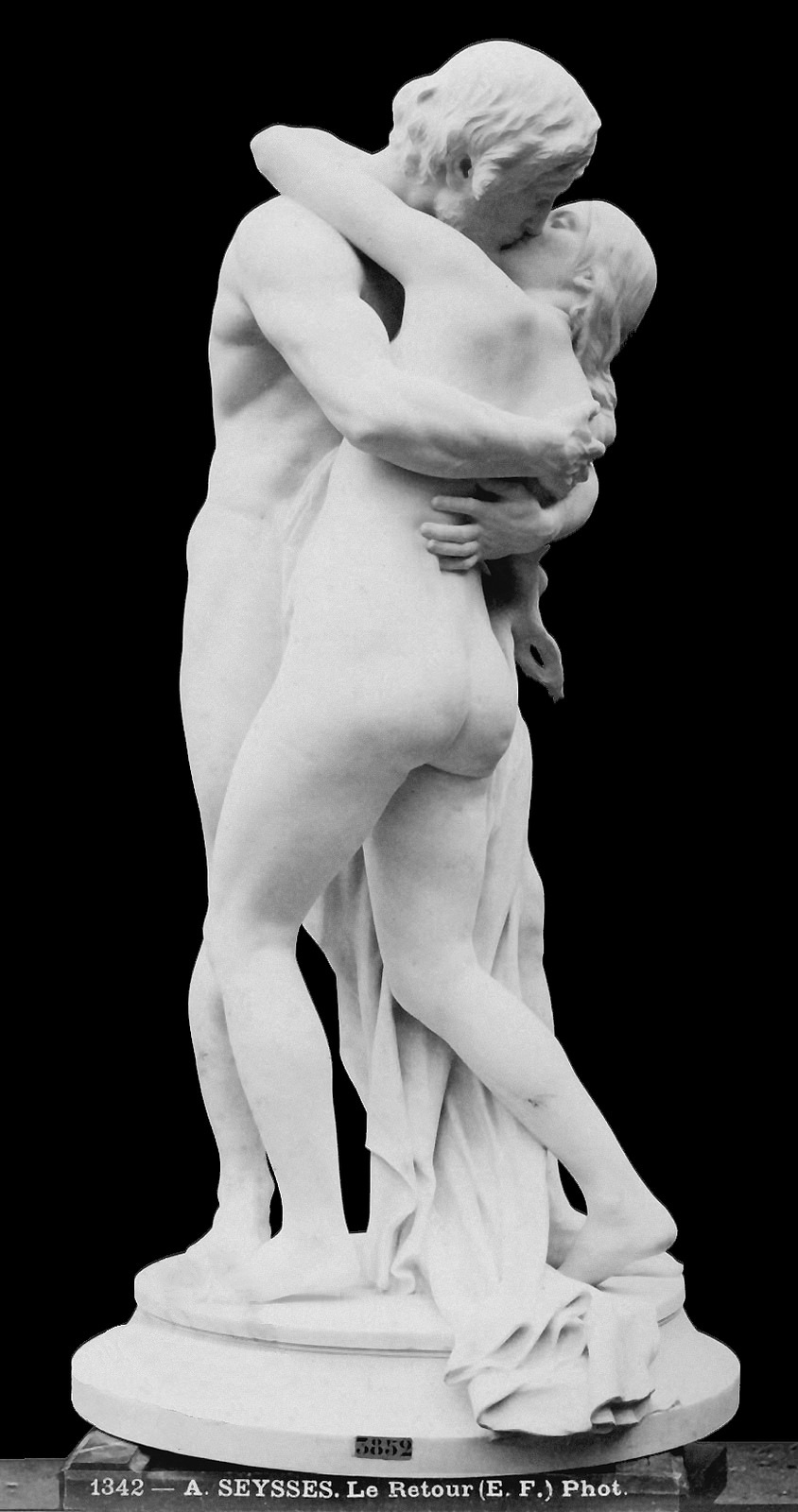
that makes love persist.
Trust helps us over the rough places that crop up in every relationship.
Moreover, our bodies are designed to produce a slew of chemicals
that bond us tightly to our loved ones.
Monogamy is not only possible, it is our natural state.
“Dependency” is a dirty word in Western society.
Our world has long insisted that healthy adulthood requires being emotionally independent and self-sufficient, that we, in essence, draw an emotional moat around ourselves.
We talk of being able to separate and detach from our parents, our first loved ones,
as a sign of emotional strength.
And we look with suspicion at romantic partners who experience too much togetherness.
We say they are too involved with, too close to, or too dependent on one another.
In consequence men and women today feel ashamed
of their natural need for love, comfort, and reassurance.
They see it as weakness.
Again, this is backwards. Far from being a sign of frailty,
strong emotional connection is a sign of mental health.
It is emotional isolation that is the killer.
The surest way to destroy people is to deny them loving human contact.
Early studies discovered that 31 to 75 percent of institutionalized children
expired before their third birthday.
More recent studies of adopted Romanian orphans,
who had spent up to 20 hours a day unattended in their cribs,
found that many suffer from brain abnormalities, impaired reasoning ability,
and extreme difficulty in relating to others.
Adults are similarly demolished.
Prisoners in solitary confinement develop a complex of symptoms,
including paranoia, depression, severe anxiety, hallucinations, and memory loss.
They call their experience a “living death.” “
"When we isolate a prisoner in solitary confinement,”
writes Lisa Guenther,
associate professor of philosophy at Vanderbilt University
and author of the book,
Social Death and Its Afterlives: A Critical Phenomenology of Solitary Confinement,
“we deprive them of the support of others,
which is crucial for a coherent experience of the world.”
The idea that we can go it alone defies the natural world.
We are like other animals—we need ties to others to survive. ….
As the Celtic saying goes, “live in the shelter of each other.”
World War II historians have noted that the unit of survival
in concentration camps was the pair, not the individual.
Married men and women generally live longer than do their single peers.
We need emotional connection
not only to survive,
but to thrive.
We are actually healthier and happier when we are close and connected.
Consistent emotional support lowers blood pressure and bolsters the immune system.
It appears to reduce the death rate from cancer and the incidence of heart and infectious disease. Patients who have coronary bypass surgery are three ties
more likely to be alive 15 years later—if they are married.
A good relationship, says psychologist Bert Uchino of the University of Utah,
is the single best recipe for good health and the most powerful antidote to aging.
He notes that 20 years of research with thousands of subjects
shows how the quality of our social support predicts general mortality
as well as mortality from specific disorders, such as heart disease.
In terms of mental health,
close connection is the strongest predictor of happiness,
much more so than making lots of money or winning the lottery.
It also significantly lessens susceptibility to anxiety and depression
and makes us more resilient to stress and trauma.
Survivors of 9/11 with secure loving relationships
were found to have recovered better than those without strong bonds.
Eighteen months after the tragedy,
they showed fewer signs of PTSD, less depression,
and their friends considered them
more mature and better adjusted
than they had been prior to the cataclysmic event.
Being the “best you can be” is really only possible
when you are deeply connected to another.
Splendid isolation is for planets, not people.
Dr. Sue Johnson - Love Sense
 RSS Feed
RSS Feed
